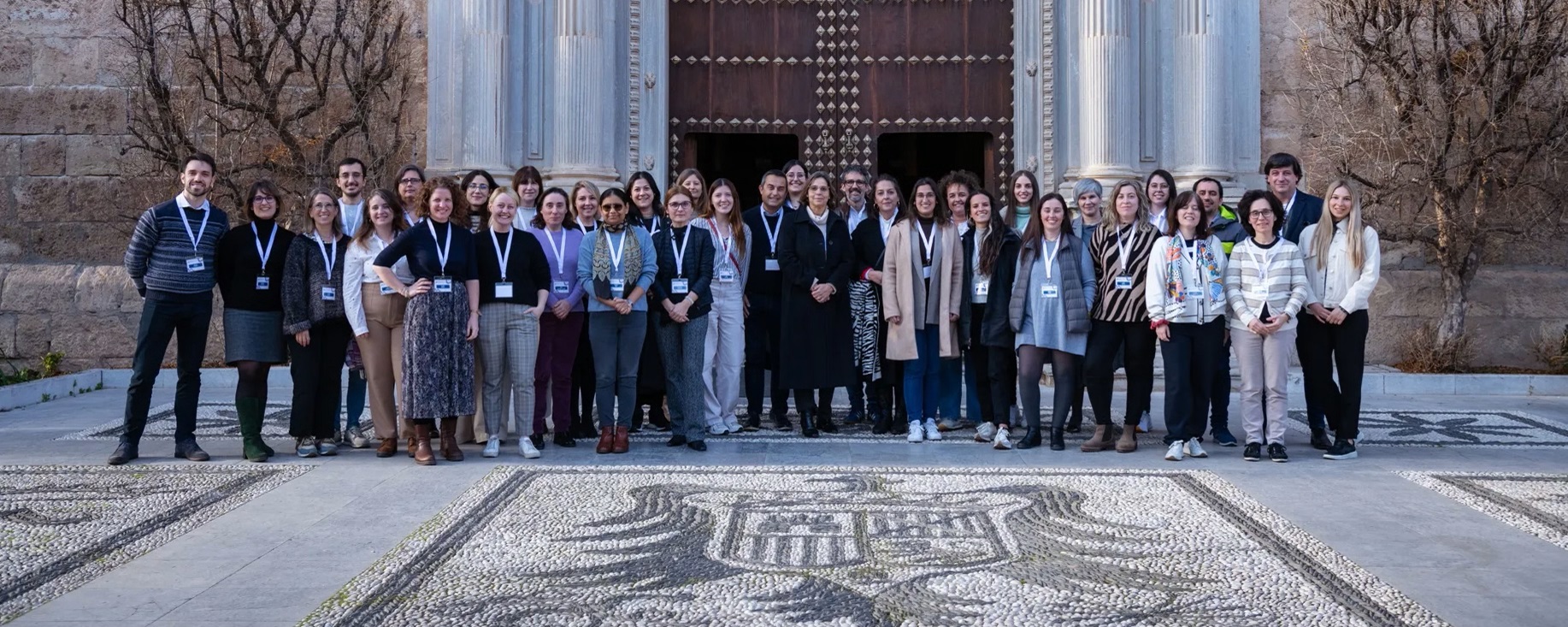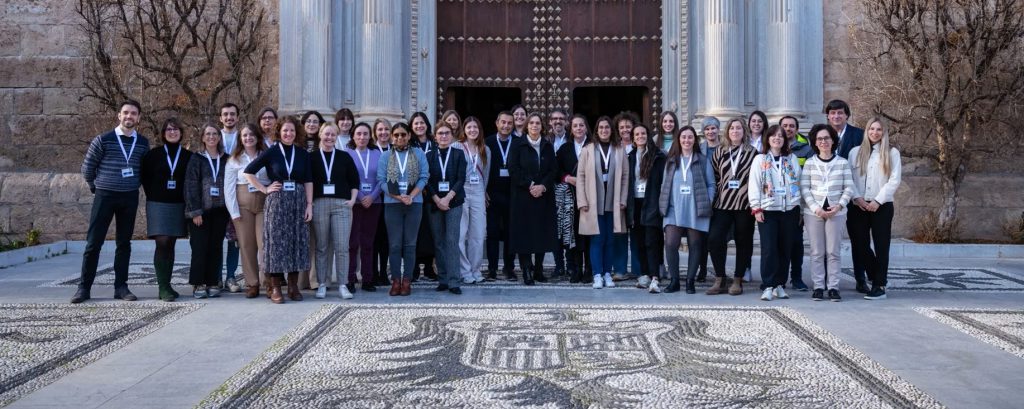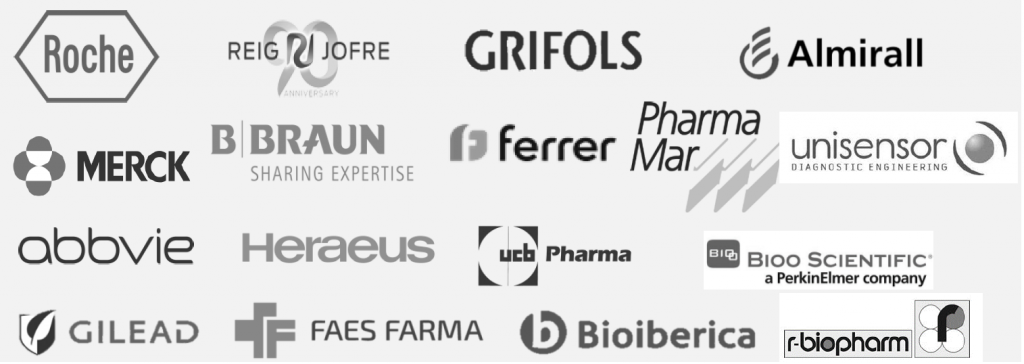
Nearly 40 scientists across 7 countries are pioneering this breakthrough in wound healing using a nobel and affordable bio-inspired, anti-bacterial matrix.
In addition to the vast consortium, the project also comprises 5 small and medium-sized enterprises (SMEs) and 9 academic institutions. These were convened last February at the University of Granada to share insights, progress, and strategies.
According to an article published by UGR at the beginning of this month, about 40 researchers involved in the project have attended a meeting to share results and progress.
The Horizon Europe project NABIHEAL, coordinated by the Biomedical Research Networking Center (CIBER) at the Institute of Materials Science in Barcelona (ICMAB, CSIC), has held a consortium meeting. The international consortium consists of 14 partners from 7 countries, including 5 small and medium-sized enterprises (SMEs) and 9 academic institutions. These partners have expertise in the development, evaluation, and commercialization of products for wound healing, nanotechnology, safety, and regulation.
Who are the NABIHEAL project partners?
There are three groups from CIBER-BBN participating within NABIHEAL: two groups correspond to Unit 6 and Unit 16 of NANBIOSIS. The former is the NANOMOL Group, and is lead by Nora Ventosa, the project coordinator of NABIHEAL. The later corresponds to our Surface Characterization Unit from UEx. The third CIBER-BBN group is the Photonics Engineering Group (GIF) from the University of Cantabria, with several of its leaders working at NABIHEAL.
In addition, researchers from the UGR’s Advanced Therapies: Differentiation, Regeneration, and Cancer group, as well as the Clinical and Translational Dermatology group, are participating as one of the partners in this consortium. Both belong to the ibs.GRANADA Biosanitary Research Institute and the UGR’s Modeling Nature: from nano to macro Excellence Unit.
Professor Juan Antonio Marchal Corrales leads the project at the UGR and is part of the project’s steering and executive committees. This project is developed at the Singular Laboratory of Biofabrication and 3D (bio)printing (BioFabi3D), located at the Biomedical Research Center (CIBM). In addition, UGR and ibs.GRANADA, in collaboration with the company Bioibérica, contribute their expertise in the biofabrication and 3D bio-printing of human skin models based on components of the matrix of each of the skin layers.
About the meeting at UGR:
The meeting, held on February 7th and 8th, was inaugurated by the project coordinator, Nora Ventosa, Scientific Director of Unit 6 of NANBIOSIS and researcher at a researcher at CIBER and ICMAB-CSIC, and by Enrique Herrera, the Vice-Rector for Research and Technology Transfer of the University of Granada.
The meeting was attended by 38 researchers from among the NABIHEAL partners. These included the Biomedical Research Networking Center (CIBER) at the Institute of Materials Science in Barcelona (ICMAB); the University of Extremadura and the University of Cantabria; the Spanish National Research Council (CSIC); Nanomol Technologies S.L. (NT); Bioiberica S.A.U (BIO); Histocell S.L (HCELL); Asphalion (ASPH); MyBiotech GmbH (MyB); Charité-Universitätsmedizin Berlin (CH) from Germany; the Institute for Medical Research and Occupational Health (IMI) from Croatia; the University of Aarhus (AU) from Denmark; the Technion-Israel Institute of Technology (IT) from Israel; BioNanoNet Forschungsgesellschaft mbH (BNN) from Austria, and the University of Maribor (UM) from Slovenia, as reported by the UGR.
About NABIHEAL project:
NABIHEAL, “Nanostructured Antimicrobial Biomaterials for Healing Complex Wounds,” is funded by the Horizon Europe Research and Innovation program. It has a total budget of nearly 5 million EUR for the next four years. The project addresses two unmet medical needs in the healing of complex wounds: firstly, affordable treatments for wound infections and prevention of complications during healing, and secondly, a strategy to optimize the composition and efficacy of drugs and dressings for wound healing.
Aim of the project:
Complex wounds affect the quality of life of more than 2% of the population in developed countries. Thus, it is a global health problem with a significant impact on healthcare economics. Moreover, complex wounds, including chronic wounds or major burns, are highly susceptible to microbial infection and biofilm formation, making them difficult to treat. In this regard, silver is a widely used metal in antimicrobial products for treating wound infections. However, silver-based products are expensive and have various drawbacks due to costs and environmental and safety concerns.
The NABIHEAL project will develop multifunctional biomaterials to address some of the unmet medical needs in wound management. This project will provide affordable treatments for wound infections or prevention of complications during all phases of wound healing.
In the short and medium term, NABIHEAL will develop —at least— two innovative multifunctional biomaterials for wound healing, using affordable manufacturing technologies based in the EU. In the long term, NABIHEAL could become an alternative to silver in wound dressing for wound healing.
You can read more about NABIHEAL project at the official webpage here.

Additional information
The goal of NANBIOSIS is to provide comprehensive and integrated advanced solutions for companies and research institutions in biomedical applications. All of this is done through a single-entry point, involving the design and production of biomaterials, nanomaterials, and their nanoconjugates. This goes along with their characterization from physical-chemical, functional, toxicological, and biological perspectives (preclinical validation).
In order to access our biomedical Solutions, apply here.
NANBIOSIS has worked with pharmaceutical companies of all sizes in the areas of drug delivery, biomaterials and regenerative medicine. Here are a few of them:









